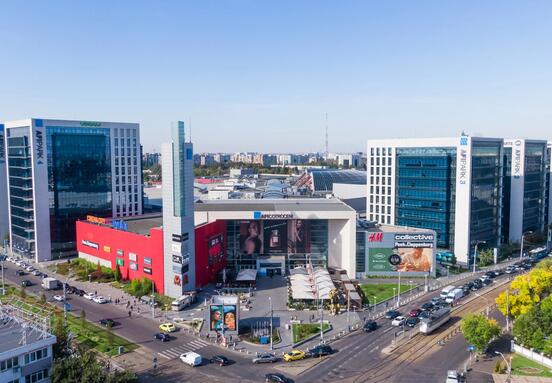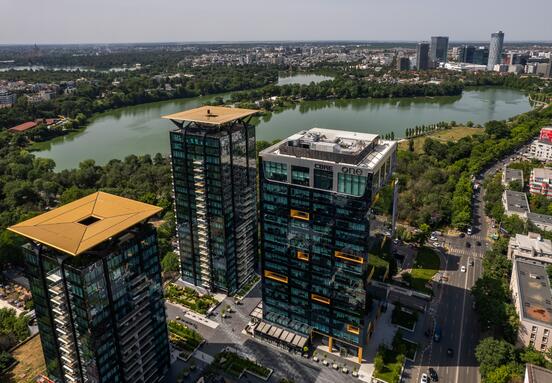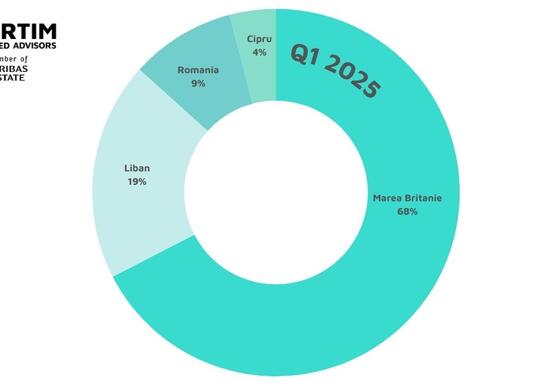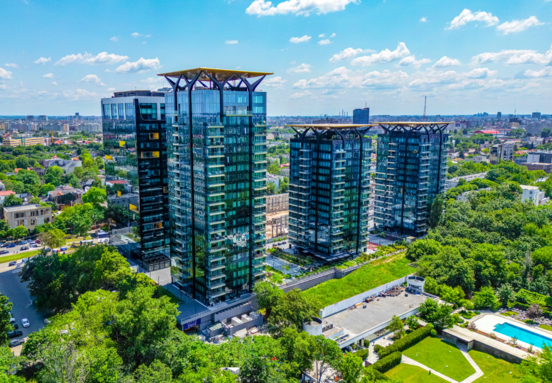2021 is expected to be a year of recovery, but many uncertainties remain, like those related to the vaccines’ ability to return everyday life more or less back to normal or to potential jitters about the monetary policy at the major central banks’, which would have deep ramifications in the global economy. Working from home will become a common practice within many companies even after the Covid-19 pandemic, a more significant return to offices of employees being expected around the middle of 2021 if the inoculation with vaccines is successful.
Romania should recover most of last year’s losses in economic activity by end-2021, but the recovery will be quite uneven. Some economic sectors, like e-commerce, construction, certain IT&C subsectors, have not blinked at all during the crisis, others should recover by end-2021, like retail trade and professional services in general, and some may take years (if ever) to crawl back to a decent activity level, like aviation, automotive or tourism, says Colliers International consultants.
A decade and a half after Romania's accession to the European Union, 2021 has the chance to lay the foundations for a period of major economic evolution, which could greatly accelerate the sustainable development of the economy in the medium term, given the new aid package from European Commission in the context of the pandemic. Romania could attract capital worth no less than 80 billion euros in the coming years, representing a third of the current level of GDP, money that should have a much greater impact than in neighboring countries, if they are used for important reforms that the country needs.
Tourism will become more locally oriented and will be practiced more frequently after things return to normal, anticipate Colliers International consultants. The vaccine offers hope in this direction, but achieving a reasonable immunity threshold will be a challenge in Romania and other countries that face a higher level of skepticism about vaccination than in Western Europe.
Remote work will become a permanent way of working, but Colliers International consultants believe that companies will want to bring their employees back to the office at least 3 days a week to encourage teamwork and organizational culture. A more significant return of employees to the office is expected from mid-2021, and the most visible results should be in the case of buildings located in residential areas, which ensure a shorter commute time.
Tenants of office buildings will dominate the year 2021, given the rapid growth of the secondary sublease market (representing over 2% of the current office stock according to current conservative estimates) and a vacancy rate of over 10%. Colliers International consultants talk about a solid schedule of deliveries of new office space, with approximately 260,000 square meters of modern offices planned to be completed in Bucharest, and expect the office market to return to equilibrium sometime in the first half of this decade .
The industrial and logistics space market ended its strongest year in history in Romania, and 2021 should not be too different, as the recent premises and trends that supported the development of warehouses are preserved: the growth of e-commerce, the need to respond a rapid expansion of modern retail schemes nationwide, the need to replace old and uncompetitive stock (including in terms of safety). There is also potential for business amid Brexit and the review of EU-US relations with China.
Retail continues to be under pressure, but Colliers International consultants see reasons for optimism. The growth of online sales has far surpassed that of traditional stores in 2020 and this trend will continue this year. Rents and the vacancy rate should remain under pressure during 2021, a recovery being estimated for 2022 or even 2023. Even in these conditions, the superior profitability offered by Romania to retail companies and the low stock of modern retail spaces reported should protect the market from possible persistent negative effects and lead to a good recovery and recovery rate.
A contraction is expected on the real estate investment market, after a very good year for this segment. Investments could decline in 2021, from about 900 million euros to about 500-600 million euros. Some investors may remain on hold due to a lack of clarity on the structure and scope of future revenues (especially in terms of better positioned assets in sectors such as offices and hotels); on the other hand, the activity may become more dynamic in the area of assets in difficulty or those with potential for transformation, which could become more attractive to buyers.
2021 brings various opportunities to the land market, say Colliers International consultants. Given the considerable number of transactions initiated in the recent period (including 2020), the land market seems ready for a good year. Retail developers, including big box operators and residential developers, will remain the engines of the market. Demand for office and hotel land will remain low, and Colliers International consultants do not expect significant changes from them, given the uncertainties surrounding the leasing component.
Despite the difficult economic reality, the residential market continued to see strong demand and modest price increases (on average) in 2020. But things look a little different now - private sector wage growth has stopped and a resumption of the positive trendit is not estimated in the short term, while civil servants' salaries are frozen amid fiscal consolidation - in this context, 2021 is expected to be a softer year for the residential sector. On the other hand, the development dynamics of cities and peripheral areas remain attractive in the long run, given the problem of urban overcrowding in Romania. (Source: Colliers)
Read the full Colliers report here.







